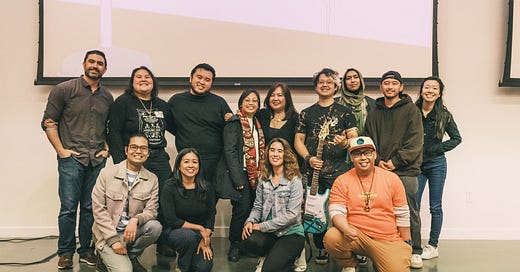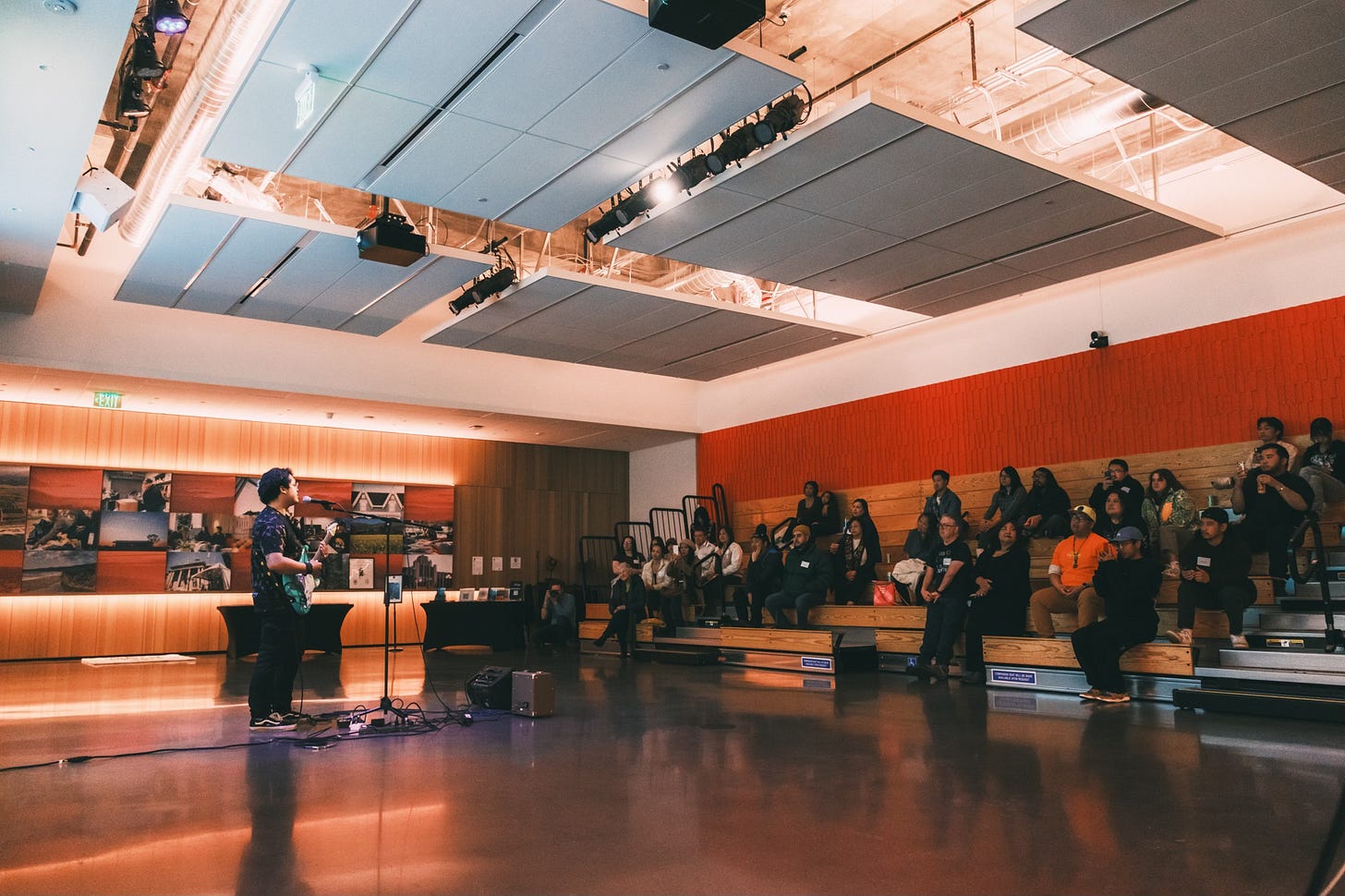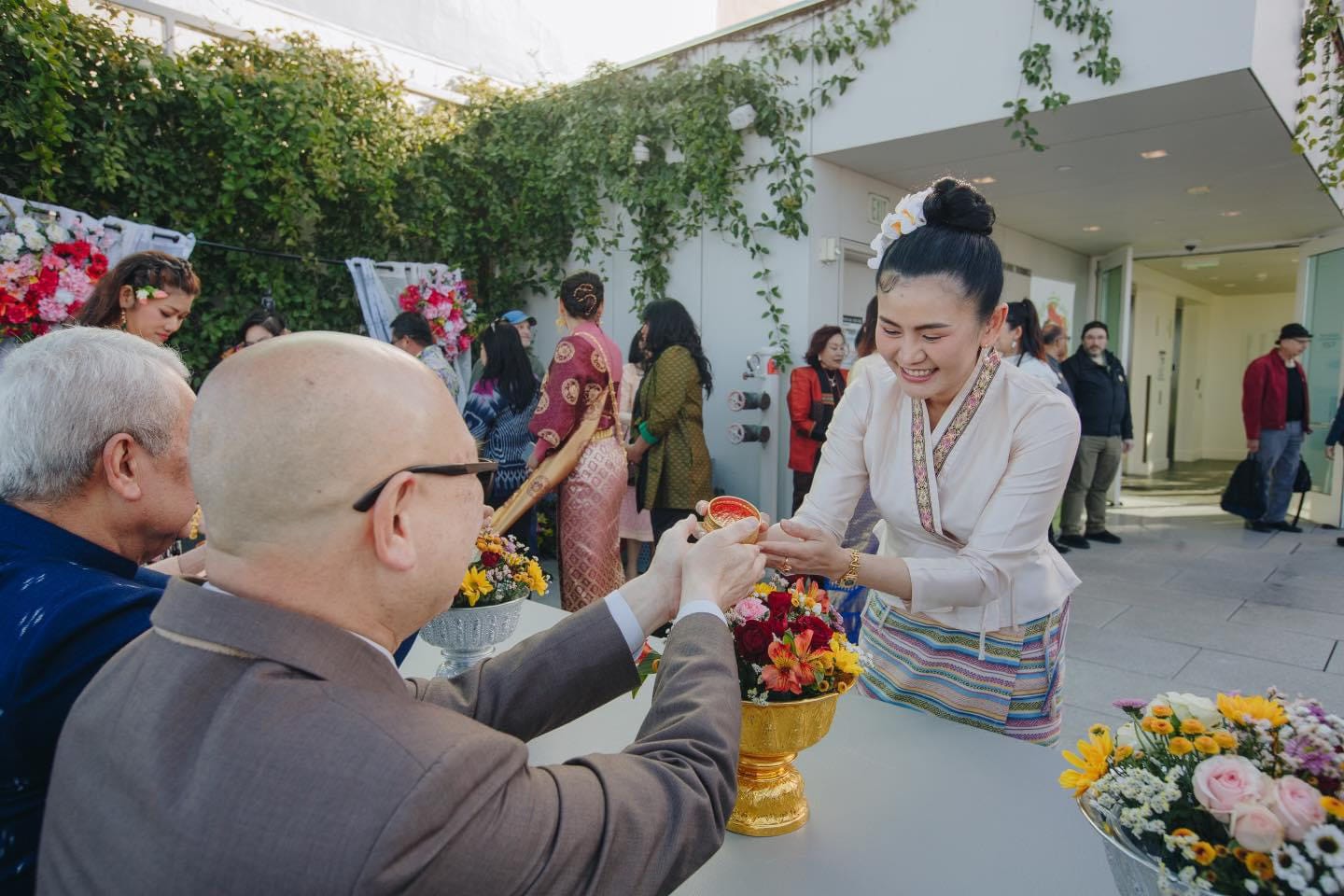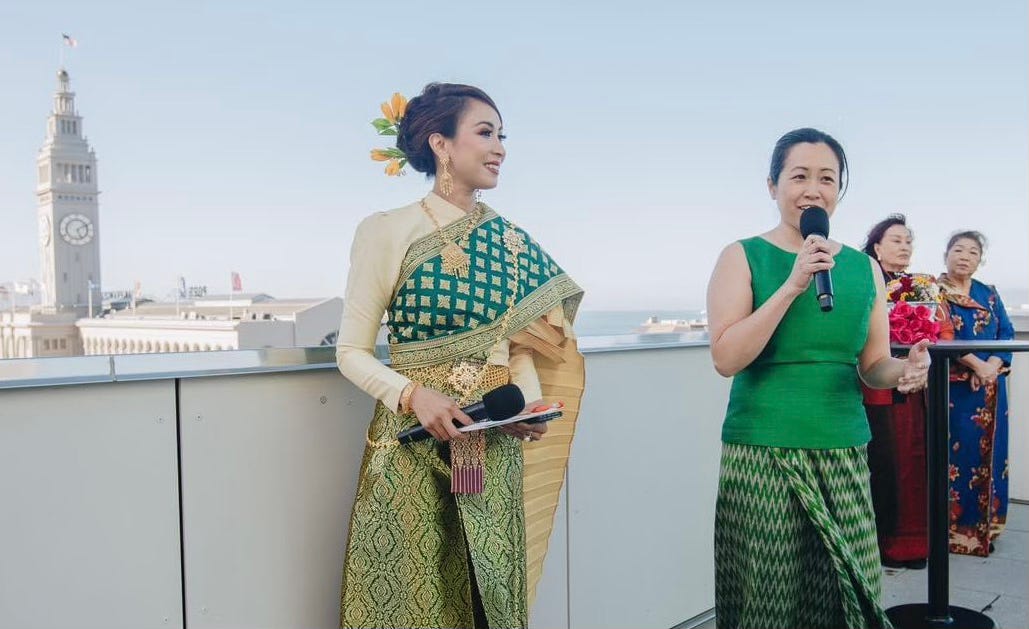April and spring have gotten off to a fast start since my last writing. Our CreativiTea Open Mic in Redwood City was a smashing success! Stir Fry Stories partnered with Chopsticks Alley to bring their monthly open mic to a new city. It was an inspiring evening of multi-talented AAPI artists: singers, poets, a rapper, and a rugmaker. :)
In preparation, I began to attend open mics regularly. Their intimacy sparked a new love and new warning in me. With all the streaming content, headliner concerts, blockbuster movies instantly consumable at our fingertips, it is easy to forget that art is available local and live. The more that is forgotten, the less everyday people will put pen to paper and share stories. I am guilty of forgetting too. I grew up dancing to only live music at the Thai temple, I also take it for granted. The curated line-up of our Open Mic spanned from a poet’s first public reading to the published poet laureate of the county. Everyday artists at any point in their journey can share a stage. It is noteworthy to mention that two creative initiatives would be called “stir fry” stories and “chopsticks” alley. Stories are food, and people are hungry.
Soon after came Songkran. TLC New Year. Thai Lao Cambodian. My favorite holiday – although in my youth, I used to envy my Chinese friends counting their earnings from red envelopes at Lunar New Year and all I got was a water fight.
This year, I was asked by The Bamboo, a local nonprofit, to emcee a water blessing, uncharacteristically, on a bayview rooftop in downtown San Francisco for a mixed Thai and non-Thai audience who came to listen to a panel on Southeast Asian-Am representation in arts entertainment. I realized that I should weave my improv’ed scripts into Substack writing – a chance for readers to partake in festivities from afar. So here we go…
Thai New Year marks the beginning of the solar new year which Thai people borrow from the South Asian/Hindu calendar. The water blessing at new year’s is the chance for all generations to give a mutual blessing - when you pour water on the hands of elders with a “sawadee pii mai” (hello new year) and they, in return, sprinkle droplets back blessing us with happiness, prosperity, good health, and longevity. This happens in a receiving line – where elders and monks are seated by flower arrangements and water basins. The trick is to properly estimate the amount of water in one’s blessing bowl divided by the number of seated elders. If you over-pour, you will not have enough to bless elders at the end of the line! Having enough water is a serious matter. Blessing or otherwise.
April is the hottest and driest season in Thailand – and when times were mostly agricultural, why would we bless each other with our most precious resource during the harshest conditions? Because blessings are, by definition, precious. Would you bless someone with something that didn’t mean much to you? Who’s seen/read Dune? The desert people kept a reservoir of sacred water that they dare not drink. It is the lifeblood of their people – as it is for many peoples. The water basins with flower arrangements placed next to each elder catches the blessing water, to not be wasteful of course, but also letting it bring life to something else.
Thai/Theravada Buddhism also has a water pouring ritual set against a rhythmic incantation by monks. This water is used to water trees afterwards. As Buddhism made its way across Asia, it wove this local custom into its repertoire. And again, it requires pacing the pour to not run out of water before the chant is finished. I love this ritual too, because as many people who can fit their hands on the vase will pour together, and if you can’t reach, you “help” by placing your hand on the shoulder of someone who can.
The more infamous and out-of-hand water blessing at Songkran is the all-out water fight. Hoses, super-soakers, and my personal favorite – the classic bucket. This custom happens across multiple borders in Southeast Asia, including amongst the Tai Yai indigenous mountain people of Burma and Yunnan Province of China. There should be nothing timid about giving blessings. Not to mention, they should be fun and laughter-inducing. What better way to feel blessed than to be head-to-toe drenched, soaked, and dripping in a blessing?
Welcome to 2567 BE (Buddhist Era) and Many Blessings,
VC







